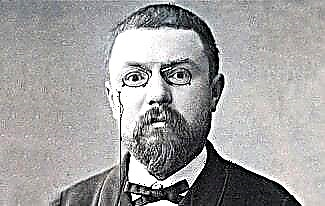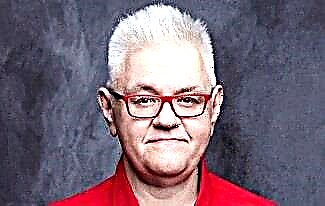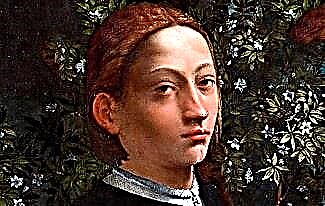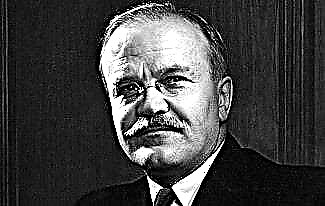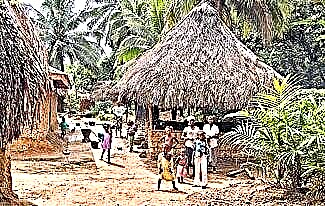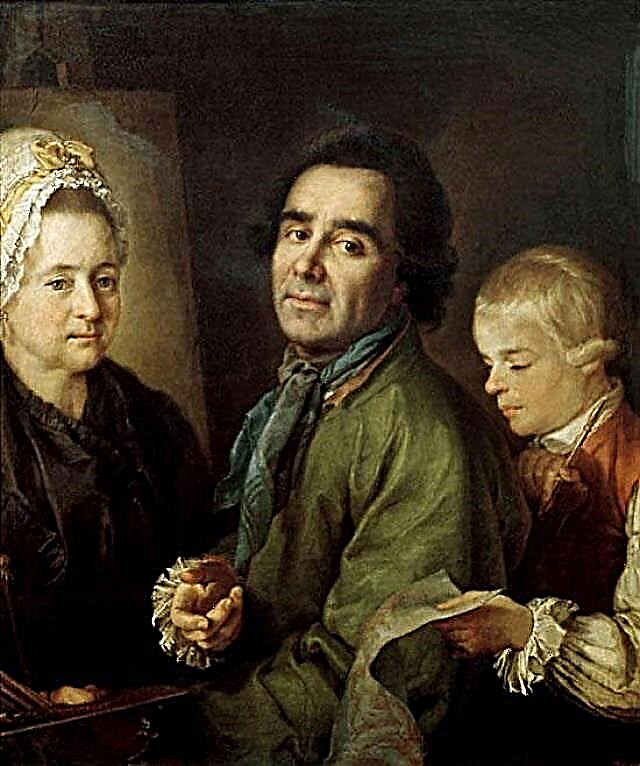Solon (approx. He was the first Athenian poet, and by 594 BC he became the most influential Athenian politician. Author of a number of important reforms that influenced the formation of the Athenian state.
There are many interesting facts in the biography of Solon, which we will talk about in this article.
So, before you is a short biography of Solon.

Solon biography
Solon was born around 640 BC. in Athens. He came from a noble family of Codrids. Growing up, he was forced to engage in maritime trade, as he experienced financial difficulties.
The guy traveled a lot, showing a keen interest in the culture and traditions of different nations. Some biographers claim that even before becoming a politician, he was known as a talented poet. At that moment in his biography, an unstable situation was observed in his homeland.
At the beginning of the 7th century BC. Athens was one of the many Greek city-states where the political system of the archaic Athenian city-state operated. The state was ruled by a collegium of 9 archons who held office for one year.
A very important role in management was played by the Areopagus Council, where the former archons were located for life. The Areopagus exercised supreme control over the entire life of the polis.
The Athenian demos was directly dependent on the aristocracy, which caused discontent in society. At the same time, the Athenians fought with Megara for the island of Salamis. Constant disagreements between representatives of the aristocracy and the enslavement of the demos negatively affected the development of the Athenian polis.
Solon Wars
For the first time, the name of Solon is mentioned in documents related to the war between Athens and Megara for Salamis. Although the poet's compatriots were tired of protracted military conflicts, he urged them not to give up and fight for territory to the end.
In addition, Solon even composed the elegy "Salamis", which spoke of the need to continue the war for the island. As a result, he personally led an expedition to Salamis, defeating the enemy.
It was after a successful expedition that Solon began his brilliant political career. It is worth noting that this island, which became part of the Athenian polis, has played an important role in its history more than once.
Later, Solon took part in the First Sacred War, which broke out between some of the cities of Greece and the city of Chris, who took control of the Delphic Temple. The conflict, in which the Greeks won a victory, lasted for 10 years.
Solon's reforms
By the position of 594 BC. Solon was considered the most authoritative politician, supported by the Delphic Oracle. It is important to note that both aristocrats and common people showed favor to him.
At that time in his biography, the man was elected an eponymous archon, who had great power in his hands. In that era, the archons were appointed by the Areopagus, but Solon, apparently, was elected by the popular assembly due to the special situation.
According to ancient historians, politics had to reconcile the warring parties so that the state could develop as quickly and efficiently as possible. The very first reform of Solon was the sisakhfia, which he called his most important achievement.
Thanks to this reform, all debts in the state were canceled along with the prohibition of debt slavery. This led to the elimination of a number of social problems and economic development. After that, the ruler ordered to restrict the import of goods from abroad in order to support local merchants.

Then Solon focused on the development of the agricultural sector and handicraft production. An interesting fact is that parents who could not teach their sons any profession were forbidden to require their children to take care of them in old age.
The ruler encouraged the production of olives in every possible way, thanks to which olive growing began to bring great profits. During this period of his biography, Solon was engaged in the development of a monetary reform, introducing into circulation the Euboean coin. The new currency helped improve trade between neighboring policies.
In the era of Solon, very important social reforms were carried out, including the division of the population of the polis into 4 property categories - pentakosiomedimna, hippea, zevgit and feta. In addition, the ruler formed the Council of Four Hundred, which served as an alternative to the Areopagus.
Plutarch reports that the newly formed Council was preparing bills for the people's assembly, and the Areopagus controlled all processes and guaranteed the protection of laws. Even Solon became the author of the decree according to which any childless person had the right to bequeath his inheritance to whomever he wishes.

In order to preserve relative social equality, the politician signed a decree introducing a land maximum. Since that time, wealthy citizens could not own plots of land in excess of the statutory norm. Over the years of his biography, he became the author of a number of important reforms that influenced the further formation of the Athenian state.
After the end of the archonship, Solon's reforms were often criticized by various social strata. The rich complained that their rights were curtailed, while the common people demanded even more radical changes.
Many advised Solon to establish tyranny, but he flatly rejected such an idea. Since at that time tyrants ruled in many cities, the voluntary renunciation of autocracy was a unique case.
Solon explained his decision by the fact that tyranny would bring shame on himself and on his descendants. In addition, he was opposed to any form of violence. As a result, the man decided to leave politics and go on a journey.
For a decade (593-583 BC) Solon traveled to many cities in the Mediterranean, including Egypt, Cyprus and Lydia. After that, he returned to Athens, where his reforms continued to operate successfully.
According to Plutarch's testimony, after a long journey, Solon had little interest in politics.
Personal life
Some biographers have argued that in his youth, Solon's beloved was his relative Pisistratus. At the same time, the same Plutarch wrote that the ruler had a weakness for beautiful girls.
Historians have not found any mention of the descendants of Solon. Obviously, he just didn't have children. At least in the following centuries, not a single figure was found who belonged to his ancestral line.

Solon was a very devout man, as can be seen in his poetry. An interesting fact is that he saw the cause of all troubles and misfortunes not in the gods, but in the people themselves, who strive to satisfy their own desires, and are also distinguished by vanity and arrogance.
Apparently, even before the start of his political career, Solon was the first Athenian poet. Many fragments of his works of various contents have survived to this day. In total, 283 lines of more than 5,000 lines have been preserved.
For example, the Elegy "To Myself" has come down to us in full only in the "Eclogs" of the Byzantine writer Stobey, and from the 100-line elegy "Salamis" 3 fragments have survived, numbering only 8 lines.
Death
Solon died in 560 or 559 BC. The ancient documents contain conflicting information regarding the death of the sage. According to Valery Maxim, he died in Cyprus and was buried there.
In turn, Elian wrote that Solon was buried at public expense near the Athenian city wall. Most likely, this version is the most plausible. According to Phanius Lesbos, Solon passed away in his native Athens.
Solon Photos






